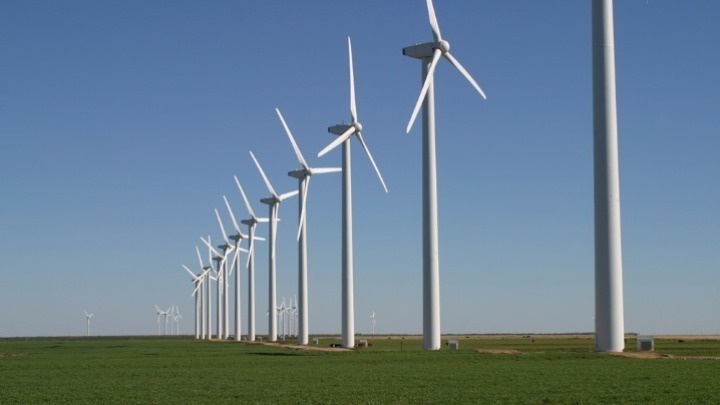Accelerating investment in renewable energy sources is the best option for reducing energy costs, protecting the environment while also reducing reliance on Russian natural gas, according to a study conducted by The Green Tank, an independent, non-profit think tank focusing on environmental policy issues.
Outlining the results of its analysis in an announcement on Wednesday, the think tank said that “renewables can achieve a much deeper reduction of Greece’s dependence on Russian fossil gas compared to the lifetime extension of lignite plants, both in the short-term as well as in the medium- and long-term.”
A return to lignite and an extension of lignite plant operation, by contrast, in addition to derailing the country’s climate targets, will be less financially advantageous and will not sufficiently reduce reliance on Russia natural gas, it said.
The conclusions of The Green Tank report “Electricity Production & Independence from Russian Gas in Greece – Report”, which examines two structurally different energy policy choices: a) the extension of the lifetime of existing lignite plants and their operation at the maximum, legally allowed levels and b) the forward-bearing deployment of renewables.
The study examines four scenarios: the existing National Energy and Climate Plan (NECP), an extension of lignite plant operation and the maximum utilization of lignite, a plan where lignite is withdrawn as planned but fossil gas use is replaced by a 70 pct share in renewables, and a plan where the share of renewables is increased to 75 pct.
This finds that the scenario envisaging an increase in use of lignite will lead to smaller savings in Russian gas use than the installation of 1GW of additional wind power units and 1GW additional photovoltaic units. In addition, it will lead to an additional 149 million tonnes of carbon dioxide emissions in 2022-2030, which at current carbon dioxide price levels on the emissions exchange will burden the country’s power production by 5.4 billion euros and 5.8 billion euros, respectively, compared with the scenarios aiming to increase the share of renewables.
“ The results of the comparative analysis show that a shift towards lignite would not sufficiently reduce dependence on Russian fossil gas, while it would also undermine Greece’s climate targets. On the contrary, a commitment to accelerating the deployment of properly sited renewables, especially during the three-year period 2022-2024, constitutes by far the best energy strategy in order to drastically reduce the reliance of the Greek economy on Russian fossil gas. Moreover, this path will lead to much lower CO2 emission costs for Greece’s electricity production system and will keep Greece on track to meet the national climate target of reducing net greenhouse gas emissions in 2030 by at least 55 pct, compared to 1990 levels”, said Nikos Mantzaris, Senior policy analyst of the Green Tank.
SOURCE; AMNA







